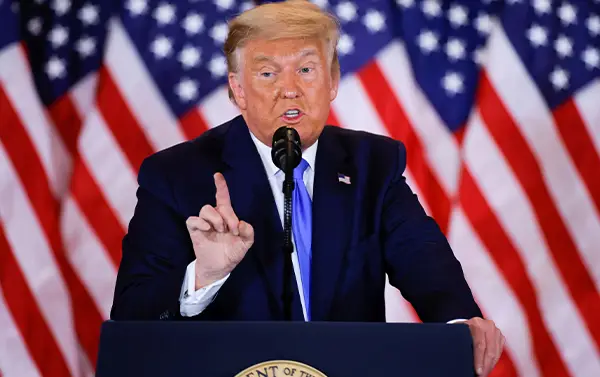Donald Trump’s reelection in 2024 raises complex questions about the legal cases he currently faces. At the federal level, Trump could potentially end his legal jeopardy by appointing a new attorney general who might drop ongoing investigations or charges. This could impact his cases related to election interference and classified documents. However, state-level cases, such as those in New York and Georgia, would be beyond his presidential powers, including the inability to issue pardons for state convictions.
State prosecutors could still pursue these cases, but legal experts anticipate efforts to delay or even dismiss proceedings while Trump is in office, citing challenges in prosecuting a sitting president. Civil cases, including those related to asset inflation and defamation claims from E. Jean Carroll, will likely continue. Past Supreme Court rulings allow civil suits to proceed against sitting presidents, so Trump could face ongoing legal battles while serving
Donald Trump is reelected in 2024, and his legal situation could shift, but it remains complex and depends on whether the cases are federal, state, or civil.
Email us to place your Ads
- Federal Cases: Trump faces federal charges for allegedly mishandling classified documents and efforts to overturn the 2020 election. As president, he could appoint a new attorney general who may decide to drop or alter the federal cases. Trump also suggested he would consider firing Special Counsel Jack Smith, who currently leads these investigations. However, firing key prosecutors may not automatically end cases if charges have been filed, and federal immunity norms for presidents do not usually extend to actions taken before office.
- State-Level Cases: Trump has pending state-level cases, notably in New York (related to business practices) and Georgia (for alleged 2020 election interference). Presidential immunity does not apply to state charges, so these cases are less likely to be halted by his presidency alone. However, his legal team could request delays, arguing that attending court could disrupt his presidential duties. Whether state courts accept such arguments may vary, but prosecutors may continue pushing for accountability despite his office.
- Civil Cases: Civil suits against Trump, including those from E. Jean Carroll for defamation and sexual assault, can continue based on a 1997 Supreme Court ruling that allowed civil cases to proceed against sitting presidents. Thus, any civil litigation involving Trump’s business practices, personal conduct, or defamation would likely carry on, subjecting him to depositions and legal obligations even while in office.
In short, a second Trump term may slow or stall some legal actions, particularly federal ones, but state and civil cases could continue independently. Legal experts foresee ongoing courtroom battles, but Trump’s presidency might influence the timeline and nature of specific legal proceedings, especially if he leverages executive powers to influence his federal cases



